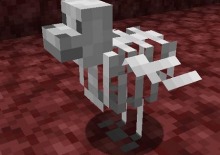Advertisement
Kiosk
KIOSK is a first-person game set in a small roadside stand where players manage food orders during quiet, late-night hours. At first, the gameplay seems straightforward—prepare meals, serve customers, and keep the workspace organized. But beneath the surface, the night shift begins to reveal strange inconsistencies. Odd behaviors from visitors, broken machines, and unsettling sounds disrupt the routine, forcing players to question what the kiosk truly represents.
From Cooking to Uncertainty
The main goal in KIOSK is to complete orders quickly and correctly. Burgers, drinks, and fried items must be cooked with precision to avoid mistakes. Over time, however, distractions begin to appear—lights flicker, customers act unpredictably, and new recipes arrive without explanation. These interruptions begin to affect performance, adding pressure as tasks pile up. Timing becomes more difficult, especially as ingredients spoil or tools stop working as expected.
Multiple Modes, One Location
Players can experience KIOSK through different gameplay options, each focusing on a specific aspect of the experience. Some modes highlight the stressful pace of customer service, while others remove danger to allow for relaxed cooking. For those looking to uncover the deeper story, a full narrative mode introduces strange sequences and hidden messages, pushing players to interpret more than just recipes.
Available Game Modes
· Story mode – reveals the strange history behind the kiosk
· Endless mode – test your skills under constant pressure
· Relax mode – prepare food without time limits or surprises
Each mode changes the atmosphere and gameplay intensity.
The Feeling of Isolation
What begins as a routine job transforms into something more psychological. The setting, with its dim lighting and distant sounds, builds a feeling of isolation. Players may begin to notice loops in behavior, patterns in customers, or changes in the environment that hint at a deeper layer. KIOSK doesn’t rush its revelations. Instead, it slowly shifts the mood until normal tasks feel unfamiliar. In this space, the line between the familiar and the unknown blurs with every shift.








































































































